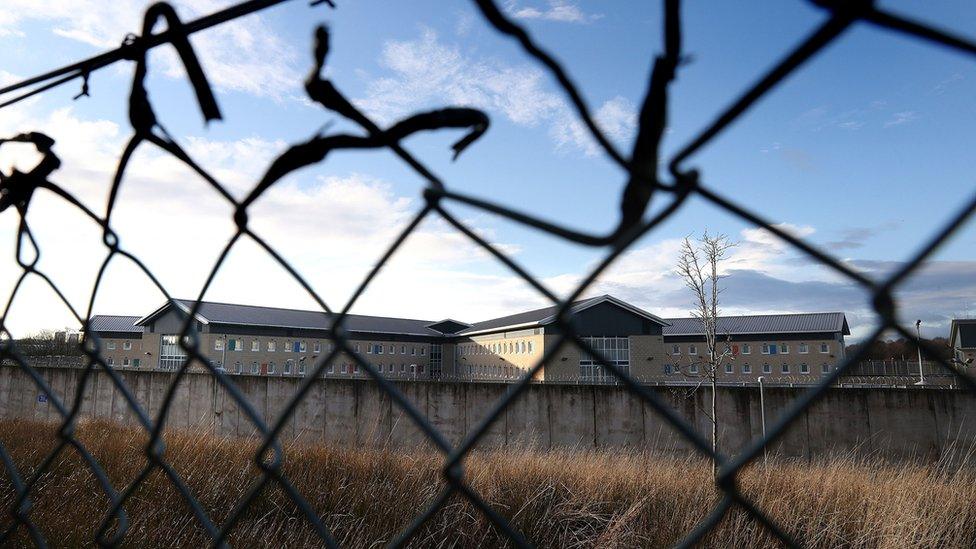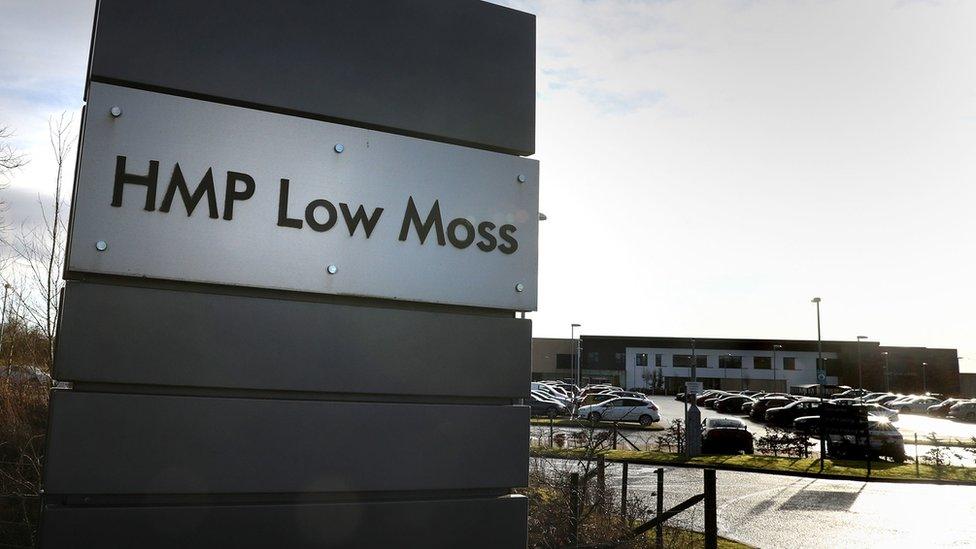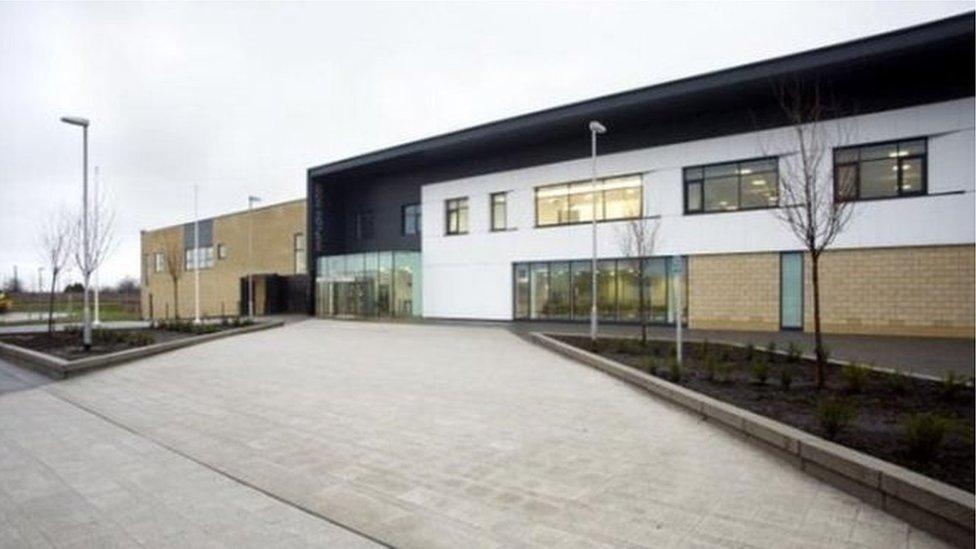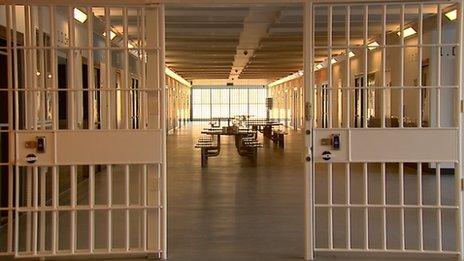HMP Low Moss: Inmates sharing single cells at overcrowded jail
- Published

HMP Low Moss, near Bishopbriggs, opened 10 years ago
One of Scotland's newest jails was overcrowded during the Covid pandemic after its capacity was expanded, prison inspectors have found.
The creation of 100 extra spaces at HMP Low Moss left inmates sharing cells designed for single occupancy.
Covid restrictions also meant a "significant number" of prisoners only had an hour of open-air exercise a day.
The prison service said it hoped a planned replacement for Glasgow's Barlinnie jail would ease pressures.
HMP Low Moss, which opened on the outskirts of Bishopbriggs in East Dunbartonshire in 2012, is one of the most modern in Scotland.
Built on the site of a demolished former jail that had wooden huts, it was described at the time as "state of the art" with wide corridors, workshop facilities for prisoners and cells with en-suite facilities.
However, when a team from the prisons inspectorate visited in early February, they found it had a population exceeding its design capacity.
The jail was originally designed for 784 inmates but this was later expanded to 884 under "Project 100" by replacing single beds with bunk beds.
The chief inspector of prisons for Scotland, Wendy Sinclair-Gieben, said it was symptomatic of a wider overcrowding problem across the country's prisons.
She told the BBC's Good Morning Scotland programme: "For some considerable time the population has far exceeded the design capacity
"Because the Scottish Prison Service has no control over the number of prisoners who come into their care, they have had to adapt by making small cells double cells by putting in bunk beds."
The report said the double cells were inadequate for two people to live comfortably side by side at a time when inmates were spending long periods in their cells due to Covid restrictions.

HMP Low Moss was originally designed to hold 784 prisoners
"While that would be reasonable to share a very small room provided you are only sleeping in it, it is unreasonable when you are spending 22 to 23 hours a day in a room with a total stranger," she said.
The report found that "significant numbers" of prisoners were limited to the minimum requirement of one hour of open-air exercise during the pandemic while infection control rules meant isolated prisoners only received one hour of fresh air every third day.
But the watchdog added: "We were pleased to see that the governor addressed and resolved this human rights issue during the inspection."
The report also found that permanent additional staff resources were not allocated to the prison following the introduction of the extra spaces, and identified a "clear need for a full capacity modelling exercise".
The inspectors observed and heard of examples of "good compassionate care and support for prisoners", particularly for vulnerable inmates, but it also reported that relationships between prisoners and staff "were not always so positive".
Alternatives to custody
A spokesperson for the Scottish Prison Service said: "Whilst we recognise that overcrowding is never desirable, we have to manage the population appropriately, and HMP Low Moss is one of our most modern establishments.
"The building of the new HMP Glasgow will provide a more permanent solution to this issue."
The Scottish government said it was investing £500m in the prison estate over this parliamentary term as well as promoting community-based alternatives to prison.
The chief inspector for prisons said she believed that finding alternatives to custody was an important part of the solution.
"If you look at the number of people on remand, it's shockingly high - higher than any other country in Europe - and in that respect, surely we can find an alternative to simply placing people on remand in prison," she said.
Despite acknowledging the pressures created during the pandemic, Ms Sinclair-Gieben said there had been some positive developments such as the better use of communication technology.
"There's a level of creativity that came out of Covid that allowed the Scottish Prison Service to reset the clock and do things better," she said.
"Telephony in cells for starters, video link calls with families. Can you imagine if you live up in Wick and your son is in Polmont, instead of having to travel down, you can now do a video visit."
Related topics
- Published23 May 2018

- Published12 March 2012
